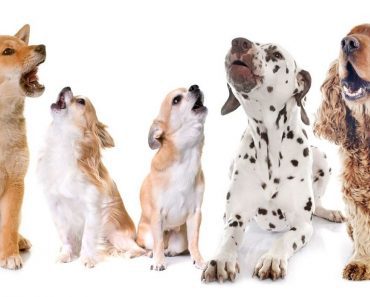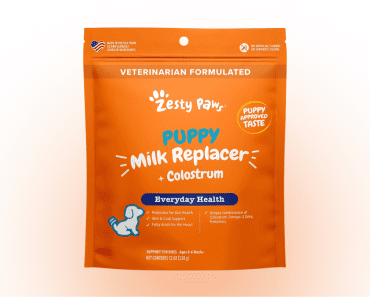
As a dog owner, you may have wondered, can dogs eat Swiss cheese or any type of cheese for that matter? While Swiss cheese is not toxic to dogs, it’s important to consider their individual dietary needs and consult with a veterinarian before introducing any new foods into their diet.
Swiss cheese, like other dairy products, contains lactose, a sugar found in milk. Dogs, especially those with lactose intolerance, may have difficulty digesting lactose, leading to digestive issues such as diarrhea, gas, and stomach upset. Therefore, it’s crucial to be cautious when feeding Swiss cheese to your furry friend.
When deciding whether to give your dog Swiss cheese or any other human food, it’s always best to seek professional advice from your veterinarian. They can provide personalized recommendations based on your dog’s specific needs and health conditions.
Key Takeaways:
- Swiss cheese is not toxic to dogs, but can cause problems for those with lactose intolerance.
- Consult with your veterinarian before introducing Swiss cheese or any other human food into your dog’s diet.
- Portion control is important, as excessive Swiss cheese consumption can lead to digestive issues and obesity in dogs.
- Swiss cheese can be given as a treat or used to administer medication, but it’s not recommended for antibiotics.
- Consider dog-friendly cheese options as alternatives to Swiss cheese, focusing on their nutritional value and benefits.
Swiss Cheese and Dogs: Exploring Health Risks and Benefits
Before sharing Swiss cheese with your furry friend, it’s essential to understand the potential health risks and benefits involved. While Swiss cheese is not toxic to dogs, it can still cause problems for dogs with lactose intolerance. Just like humans, some dogs have difficulty digesting lactose, the sugar found in milk and dairy products. Feeding Swiss cheese to lactose-intolerant dogs can lead to digestive issues such as diarrhea, gas, and bloating.
However, not all dogs are lactose intolerant. Some dogs can tolerate small amounts of dairy products, including Swiss cheese, without any adverse effects. It’s important to pay attention to your dog’s individual tolerance and observe any changes in their digestion or overall well-being after consuming Swiss cheese.
Some dogs may even enjoy the cheesy treat, as Swiss cheese tends to have a mild and nutty flavor that many dogs find enticing. But remember, moderation is key when it comes to sharing human food with your canine companion.
If you decide to introduce Swiss cheese into your dog’s diet, it’s crucial to do so in moderation. Too much Swiss cheese can lead to weight gain and obesity in dogs, as it is high in fat and calories. Additionally, the salt content in cheese can be problematic for dogs with certain health conditions, such as kidney or heart disease. Always consult with your veterinarian before incorporating Swiss cheese or any other human food into your dog’s diet.
| Benefits of Swiss Cheese for Dogs | Health Risks of Giving Swiss Cheese to Dogs |
|---|---|
|
|
Remember, every dog is unique, and their dietary needs may vary. While Swiss cheese can be enjoyed by some dogs in moderation, it’s important to prioritize their overall health and well-being. Your veterinarian is the best resource to provide specific recommendations regarding your dog’s diet and the suitability of Swiss cheese or any other food.
Canine Nutrition: Factors to Consider When Feeding Swiss Cheese
When it comes to canine nutrition, there are several factors you should consider before adding Swiss cheese to your dog’s menu. While Swiss cheese is not toxic to dogs, it can still cause problems for dogs with lactose intolerance. This is because most dogs lack the enzyme lactase, which is responsible for digesting lactose, the sugar found in milk products like cheese.
If your dog is lactose intolerant, feeding them Swiss cheese can result in digestive issues such as diarrhea, gas, and bloating. It’s essential to consult with your veterinarian before introducing any new foods into your dog’s diet, including Swiss cheese or any other human food. They can provide guidance based on your dog’s specific dietary needs and health condition.
Swiss cheese can be given to dogs in moderation as a treat, and it can even be used as a vehicle for administering medication. However, it’s important to note that Swiss cheese should not be used to administer antibiotics, as it can interfere with their effectiveness. The amount of Swiss cheese you can feed your dog will depend on factors such as their age, weight, and overall health. It’s crucial to exercise portion control to prevent digestive issues and obesity.
Pros and Cons of Giving Dogs Swiss Cheese
- Pros: Swiss cheese can be a tasty and nutritious treat for dogs when given in moderation. It contains essential nutrients such as protein and calcium, which can be beneficial for their overall health. Additionally, the texture and flavor of Swiss cheese can make it an excellent option for hiding medication.
- Cons: Dogs with lactose intolerance should avoid Swiss cheese, as it can cause digestive upset. Furthermore, Swiss cheese is calorie-dense and high in fat, so it’s essential to limit the amount given to prevent weight gain and other health issues.
Remember, every dog is unique, and what works for one may not work for another. It’s always best to consult with your veterinarian to determine if Swiss cheese is suitable for your dog’s individual needs. They can provide you with personalized recommendations and ensure that your furry friend stays healthy and happy.
| Pros | Cons |
|---|---|
| Tasty and nutritious treat | Dogs with lactose intolerance should avoid |
| Contains essential nutrients like protein and calcium | High in calories and fat, can lead to weight gain |
| Can be used to hide medication |

When it comes to feeding your dog Swiss cheese, it’s important to approach it with caution and consider their individual needs. While Swiss cheese can be a tasty treat and provide some nutritional benefits, it’s crucial to be aware of any potential digestive issues and the need for portion control. Always consult with your veterinarian before introducing new foods into your dog’s diet to ensure their overall health and well-being.
Alternatives to Swiss Cheese: Dog-Friendly Cheese Options
If Swiss cheese isn’t the best fit for your dog, don’t worry! There are plenty of other dog-friendly cheese options to choose from. Not all types of cheese are safe for dogs, so it’s important to know which ones are suitable for their consumption. Here are some dog-friendly cheese alternatives that you can consider:
- Cheddar Cheese: Cheddar cheese is one of the most popular cheese choices for dogs. It is a good source of protein and calcium. However, it should be given in moderation as excessive amounts can lead to weight gain and digestive issues.
- Cottage Cheese: Cottage cheese is another excellent option for dogs. It is low in lactose, making it easier for dogs to digest. Cottage cheese is also rich in protein and can be a great addition to their meals or used as a training treat.
- Mozzarella Cheese: Mozzarella cheese is generally safe for dogs in small quantities. It is a good source of calcium and protein. However, it is important to avoid giving dogs too much mozzarella cheese as it can lead to gastrointestinal upset.
When introducing any new cheese to your dog’s diet, it is crucial to do so gradually and in moderation. Dogs have different dietary needs and tolerances, so it’s essential to monitor their reaction to new foods. Always consult with your veterinarian before making any significant changes to your dog’s diet or introducing new foods.
Table: Comparison of Dog-Friendly Cheese Options
| Cheese Type | Protein Content | Calcium Content | Lactose Content |
|---|---|---|---|
| Swiss Cheese | 5g per ounce | 224mg per ounce | Low |
| Cheddar Cheese | 7g per ounce | 204mg per ounce | Low |
| Cottage Cheese | 23g per cup | 138mg per cup | Low |
| Mozzarella Cheese | 6g per ounce | 207mg per ounce | Low |
Remember, cheese should not be the main component of your dog’s diet. It should be given as a special treat or used in small quantities as part of their overall meal plan. Always prioritize their nutritional needs and consult with a professional to ensure their diet is balanced and healthy.
Conclusion
In conclusion, while dogs can have Swiss cheese in moderation, it’s crucial to prioritize their overall health and consult with a veterinarian before introducing new foods into their diet. While Swiss cheese is not toxic to dogs, it can still cause problems for dogs with lactose intolerance. Therefore, it’s essential to be mindful of your dog’s individual dietary needs and potential sensitivities.
Swiss cheese can be given to dogs as a treat and can even be used to administer medication, although it’s important to note that it is not recommended for antibiotics. When determining the appropriate amount of Swiss cheese to feed your dog, factors such as their age, weight, and overall health should be considered. Overfeeding Swiss cheese can lead to digestive issues and obesity in dogs, so it’s best to keep it on the menu in moderation.
However, it’s important to remember that Swiss cheese is not the only cheese option for dogs. There are several dog-friendly cheese alternatives available that can provide both nutritional value and potential benefits. Some examples include cheddar, mozzarella, and cottage cheese. These alternatives can be a safer option for dogs with lactose intolerance or other dietary restrictions.
Ultimately, the key to keeping your furry friend healthy and happy is to make informed decisions about their diet. Consulting with your veterinarian is always advisable to ensure that you’re providing your dog with a balanced and appropriate diet. By doing so, you can ensure that any cheese or other human foods you introduce to your dog’s diet are suitable for their specific needs and contribute to their overall well-being.
FAQ
Can dogs eat Swiss cheese?
While Swiss cheese is not toxic to dogs, it can still cause problems for dogs with lactose intolerance. It is important to consult with your veterinarian before feeding your dog Swiss cheese or any other human food.
Can Swiss cheese be given to dogs as a treat?
Yes, Swiss cheese can be given to dogs as a treat. However, it should be done in moderation, considering factors like their age, weight, and health.
Can Swiss cheese be used to administer medication to dogs?
Yes, Swiss cheese can be used as a vehicle to administer medication to dogs. However, it is not recommended for antibiotics.
What are the potential risks of feeding Swiss cheese to dogs?
Feeding too much Swiss cheese to dogs can lead to digestive issues and obesity. It is important to practice portion control and moderation.
Are there any dog-friendly cheese options other than Swiss cheese?
Yes, there are alternative cheese options that are safe and suitable for dogs. Some dog-friendly cheese choices include cheddar, cottage cheese, and mozzarella. The nutritional value and potential benefits may vary, so it’s best to consult with your veterinarian.






